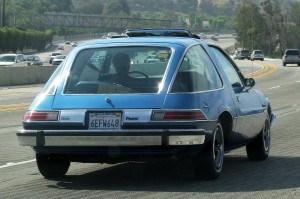Episode 4
It was I who heard them first. Horses pushed hard by angry men.
We had covered perhaps five miles by sunrise; the terrain was still friendly enough, and as the clouds broke up a sliver of moon provided enough light for us to avoid the worst obstacles. A bed of pine needles on the forest floor softened our steps as we wove between the dark pillars of the tree trunks. Katherine, when I could see her at all, seemed to blend with her surroundings until she was little more than a shadow. If ever needed to kill her, I decided, I’d make sure I did it in town. But today we were on the same side, or at least running from the same people, and the sound of pursuit to the south meant that blood would soon be spilled.
“Horses,” I said.
The others stopped to listen. After a moment Katherine nodded. “Riding hard — they don’t care if some of them break their legs.”
“How many?” Bags asked his partner.
“Several. Maybe ten.”
I would have wagered seven were I in a more congenial crowd. “No dogs,” I said, with some relief. Dogs are harder to deceive.
Katherine scanned the rising ground ahead of us. Not far to the west a rocky outcrop peeked above the trees, its pale face shining pink in the early-morning light. “We’ll set up there,” she said and turned that way without waiting for an answer. Bags and I followed, jogging behind her.
She didn’t slow until she was at the top. While Bags caught his breath I explored the outcrop, listening as the horses drew near. We were in a a good, defensible position, the approach to the outcrop easily visible. To the right was the gentler slope we had climbed, to our left the rocks were broken and jumbled.
“I should be able to get a couple of them before they reach shelter,” she said.
“What if they shoot back?” I asked.
She smiled. “I hope they do.”
Bags pulled his sword free. Everything about him was ragged except that blade, gleaming in the early-morning light. “I can hold the path,” he said, “’till you pick them apart.”
I studied the outcrop, and realized that I would be little help in the battle they were imagining. I have no sword, no armor, and no bow. “I’ll see you two later, then,” I said, and started down the other side, away from all the trouble.
“Where are you going?” Katherine asked me sharply.
“Not sure yet. I’ll play it by ear.”
“You godfucked son of a mongrel,” Katherine said. “I didn’t take you for a coward.”
“This isn’t my sort of fight,” I said over my shoulder.
“See you later, then,” Bags said.
Her voice was steady and hard. “I will find you, Martin. You can count on that.”
“I’m counting the minutes, Kat” I called back. Then I was among the trees, and I began moving more quickly, while wisdom warred with curiosity in my head. If I kept walking, I could live to spend the gold in my wallet, Kat’s threats notwithstanding. I could be far from the ugly politics, far from hundreds of angry soldiers. Eventually Katherine and Bags would be killed, Katherine’s connections discovered, and I would be forgotten. All I had to do was keep walking west.
Wisdom lost the battle, but of course you knew that already. Wise men rarely have interesting stories to tell; people don’t crowd pubs exchanging stories with their friends about the time they did the wise thing. I found myself curving around to my right toward the jumbled rocks on the north side of the outcrop where my friends waited to fight seven to ten well-armed men.
Our pursuit would have seen our change in direction and known exactly what it meant. They would be cautious. Katherine’s bow would slow them, and Bags’ sword would push them back, but assuming my companions won those two skirmishes, there would be other men looking for a more subtle path up. I needed to find that path first.
I found a likely spot, a fissure in the weathered granite that provided shelter from arrows and unwanted eyes. Through that passage the honorable men who wished to slaughter us would be able to get behind my companions at the top of the hill, making the fight much more fair than I was comfortable with allowing. I moved through the gap and found a nice nook behind a loose boulder. I was just settling in behind the rough, weathered stone when I heard the first man cry out. An arrow had found flesh. There were shouts, the leader instructing his men, but I couldn’t make out specific words.
Another curse, and the clash of metal, then quiet. If Bags had been overwhelmed, the enemy was now above and behind me. Best not to think about that. I had only one choice: to trust my judgement, to trust my companions, and to do what I do best.
Perhaps ten minutes later I heard the first furtive sounds of men trying to be stealthy while wearing metal clothes. By the time they were near me I had identified three of them by the sounds they made. I would have preferred two.
The knife I chose for this job was thin and razor-sharp, her blade the color of a dark dream on a moonless night. The smith who had forged her was dead now, slain by her twin. If I was going to die today, I wanted to die with this lovely blade in my hand. The steel was surprisingly resilient, but if I erred and hit armor rather than flesh she would break in a thousand pieces. Mentally I promised the piece of metal that I would not miss.
Three of them. I’d have to wait until I was right in the middle of them to make my move. If they didn’t cooperate and pass where I thought they would, my best option was to start running and not stop until nightfall.
They cooperated. The first was past me when I lunged from my little haven and cut the throat of the second, my black steel sliding through his flesh like it was air. The third in line had time to raise his sword before I found his larynx and pushed my knife home. Blood gushed onto my hand, threatening my grip, as I turned to face the one who had been in the lead.
He was facing me, sword ready, shouting obscenities that were frankly unimaginative. His feet were searching for purchase on the rocks, his hard-soled boots with tapered toes were made for the stirrup, not uncertain ground. His armor was clean and showed not a spot of rust, his green cloak hung easily on his shoulders. He held out his sword, fighting for balance on the rocks, and he knew that his only advantage was that his deadly steel was longer than mine. We seemed to be in a standoff. From above came another clash of steel, another cry of pain.
“You’re the last one,” I said. “All your friends are dead.”
“You are a lying son of a whore,” the soldier said. He was barely more than a kid, the fuzz on his cheeks more a wish than a beard.
I shrugged. “We can stand here until my big friend comes down to see what all the shouting is about, or you can drop your sword and go back the way you came.”
“If I drop my sword, you’ll kill me.”
I smiled and moved my blade to the side just enough, my empty hand in a placating gesture. “Why would I do that? I just want to be on my way. Drop your sword and start walking, and we’ll have no reason to kill you. We’ll be keeping your horses, of course.”
From above the sound of heavy footsteps. One person, favoring a leg. If it wasn’t Bags, I wanted my current situation resolved long before he arrived. “You’re time’s running out,” I said.
The sound of his sword rattling among the rocks reverberated through the forest. “Thank you,” I said. I reached out my hand to steady him as he clambered back past me. When he was next to me I cut his throat and watched his eyes widen in shock as he choked on his own blood. “You saw my face far to well, kid,” I said as he slumped to the ground. He deserved an explanation.
I turned to meet the approaching footsteps. Bags greeted me with his gap-toothed grin. There was blood smeared on his cheek, but I couldn’t tell if it was his. “Good to see you,” I said.
“Dangerous work,” he said. “Three of them, huh?”
I nodded. “Kat all right?”
“Yeah. Might go easier for all of us if you call her Katherine.”
“I know.”
“You also should have told us your plan. So we could work together.”
“I didn’t know my plan.”
“Maybe not specifics, but you did know generalities.”
“To be honest, I wasn’t sure I wasn’t going to take the chance to leave you guys behind.”
His face was almost serious for a moment. “Fair enough. Why didn’t you?”
“Still might. But you’re a good guy. Hate to see you die some anonymous death out here in the middle of nowhere.”
“You imagine a better death for me?”
“Maybe not better, but later.”
Bags laughed. “I’ll take it. And I’ll tell Katherine that I’ve already chewed you out for not being a team player.”
“A lot of good that will do.”
Again that smile. That toothless smile that lacked any guile at all. “Oh, she’ll still be madder than a cat in sack, but she won’t say anything. And she knows that you’re going out of your way to annoy her for a reason. She just has the wrong reason.” He laughed again. “She thinks you like her.”





